Best cameras according to National Geographic photographers
Categories: Technology
By Pictolic https://pictolic.com/article/best-cameras-according-to-national-geographic-photographers.htmlIf there were a standard for landscape photography in the world of photography, this standard would undoubtedly be the photographs of National Geographic magazine photographers. Exotic countries, wild nature and incredible natural phenomena are all objects of hunting for photographers who work tirelessly so that we can see the moment, so beautiful that it is impossible to take your eyes off. But, as in any magic, in reality everything turns out to be verified professionalism, which in most cases is impossible without high-quality equipment.
National Geographic photographers recently opened up about their work and revealed the cameras they use to capture all these beautiful shots.
(Total 8 photos)
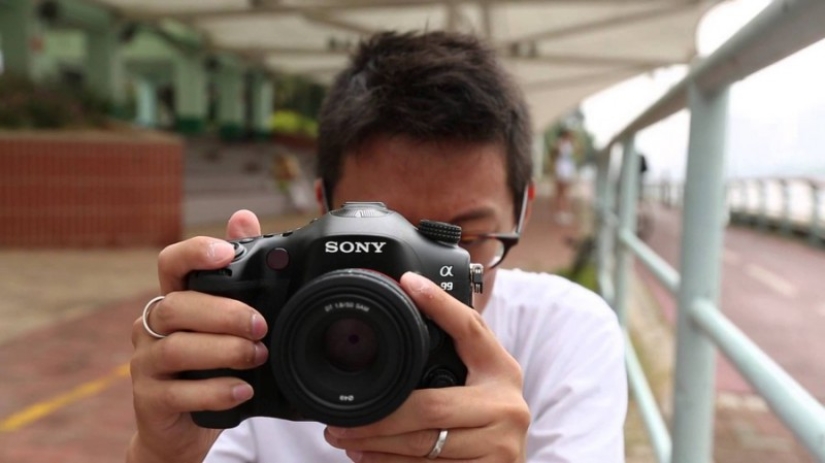 Source: trendymen.ru
Source: trendymen.ru
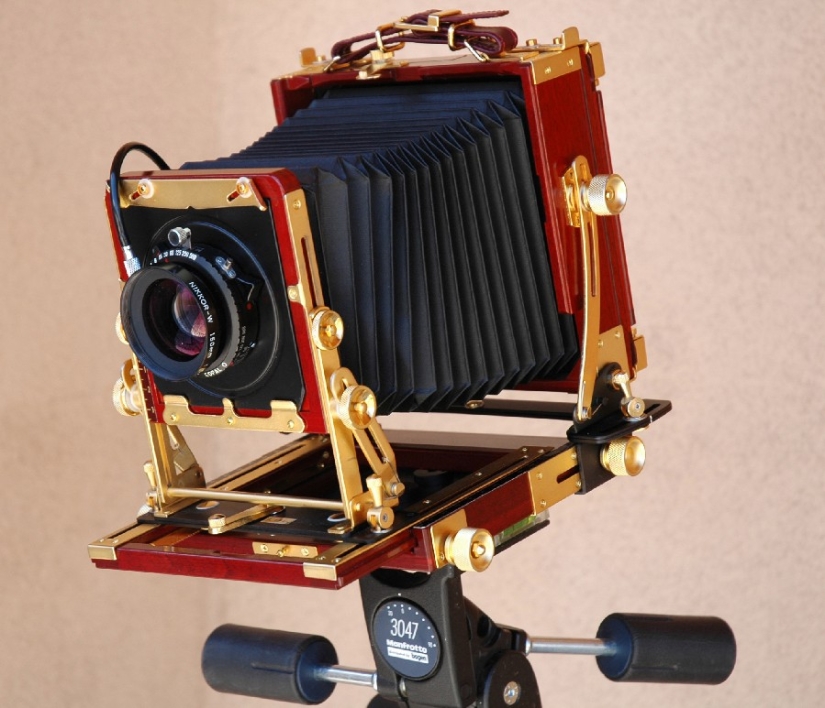
1. Amy Tenzing, Canon 5D Mark III
The Canon EOS 5D is the first full-frame camera available. Before 5D came along, full-frame cameras were bulky and heavy. And most importantly, they were terribly expensive. Many photographers have complained about the size and the fact that they have to carry several kilograms of equipment with them. The Canon EOS 5D is classified as "semi-professional" because it lacks some of the features that are available on full-fledged Canon professional cameras (burst speed, number of focus points, etc.). But most photographers do not need these bells and whistles. Well, starting from the second generation, 5D can shoot great video. Most student short and feature films are currently filmed with these cameras.
Sensor: 22.3 MP, full frame.
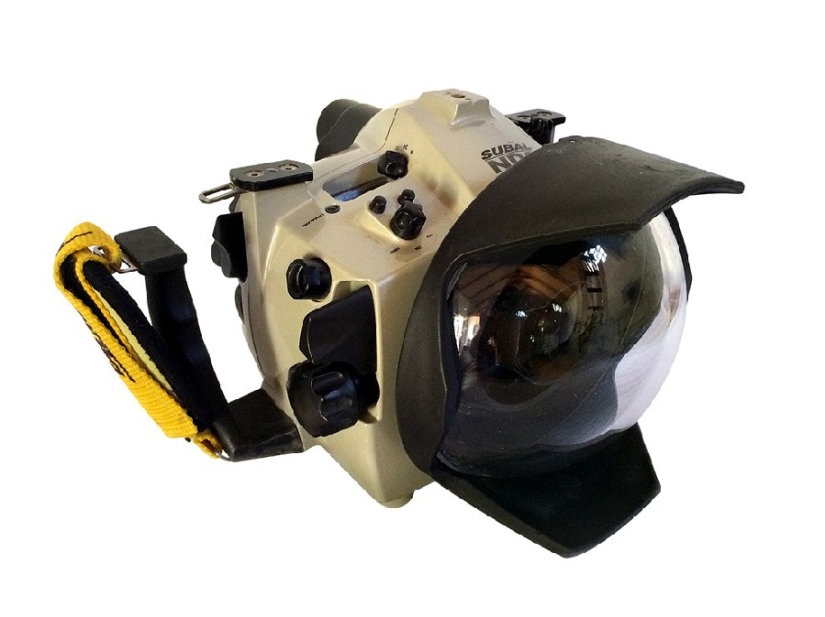
2. Eric Larsen, Wista 4×5
Erik Larsen's most famous works were captured using an old-fashioned camera that cannot be photographed unless the camera is mounted on a tripod. And the world in the camera lens appears upside down. Nevertheless, the famous National Geographic photographer took all his famous pictures with the Wista 4x5 camera. Another nuance in using the camera is that you need to cover yourself with a dark cloth to compose the shot. Undoubtedly, such a procedure adds to the sacrament process.
Sensor: 9x12, sheet film.
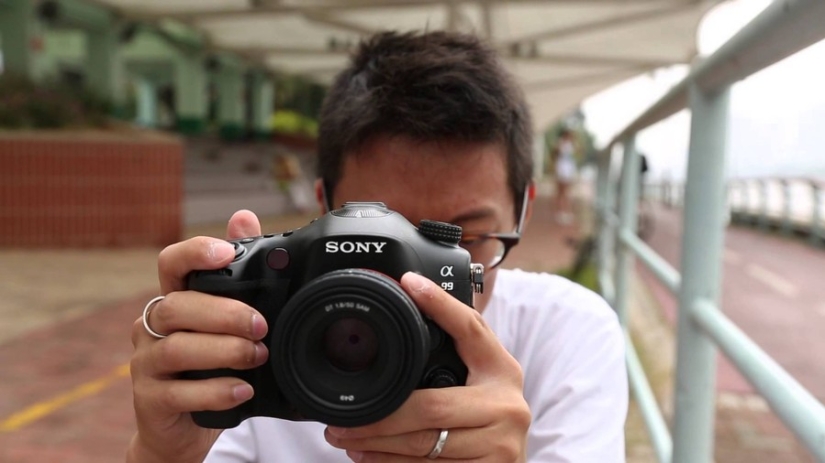
3. Thomas Peschak, Nikon D3S
For many years, Nikon refused to take part in the megapixel race. While other manufacturers have stepped up the resolution, Nikon has kept cameras in the lineup that have lower resolutions but can work well in low light conditions.
Photographer Thomas Peszczak uses this camera for his work in the most exotic parts of the world. As a rule, he uses a durable waterproof case, since most tasks involve diving.
Sensor: 12 MP, full frame.
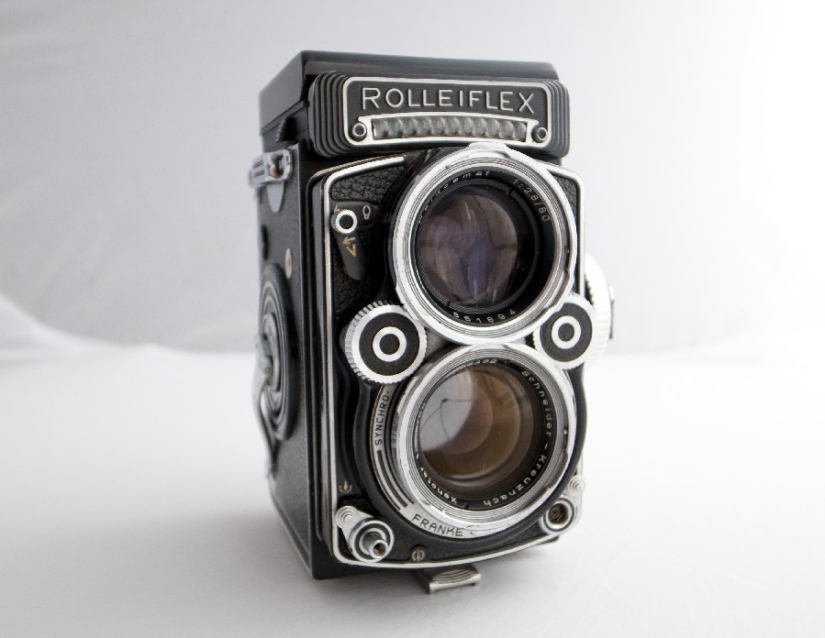
4. Mike Yamashita, Sony Alpha A99
In 2008, Sony announced a camera with a full frame sensor. 25 megapixels cost $1100, while the only camera with the same resolution from Nikon cost about $7000. Another important advantage of Sony was the level of lenses that were produced by Zeiss. National Geographic staff photographer Mike Yamashita was among the first to buy the camera and traveled with it to many countries.
Sensor: 24 MP, full frame.
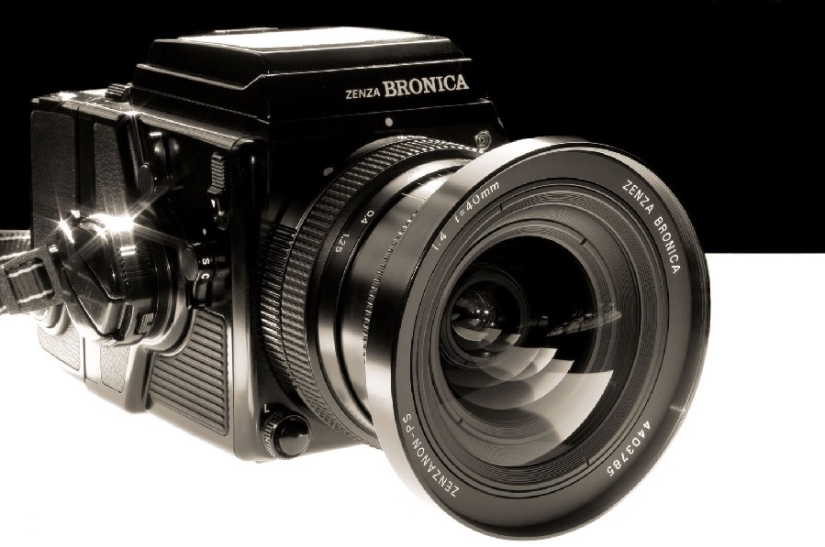
5. Rena Effendi, Rolleiflex TLR
Rena Effendi is a member of the "two-eyed" club. These cameras may seem a little strange, but the result is worth it. Here is what Rena says about her camera: “Working with Rollei forces me to be a slow photographer, which leads to the fact that the whole process becomes more meditative. It's the type of camera that I can't run with or capture fleeting moments. But these restrictions give freedom to creativity.
Sensor: 6×6, film type 120.
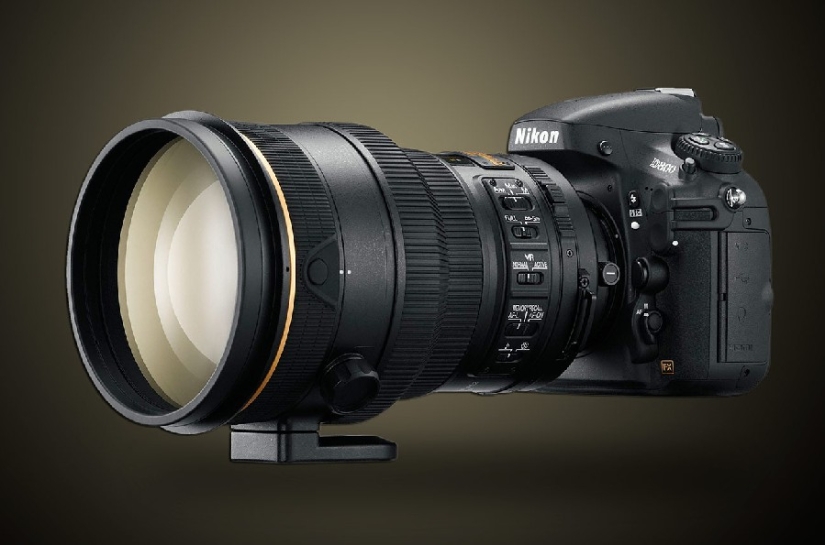
6. Steve Winter, Canon 700D
The Canon 300D was the first truly affordable DSLR because it cost about $1,000. The original 6-megapixel camera still has many admirers to this day, including National Geographic author Steve Winter. Now he carries with him a 700D, a modern version of the 300D, as a backup camera.
Sensor: 18 MP, crop factor 1.5.
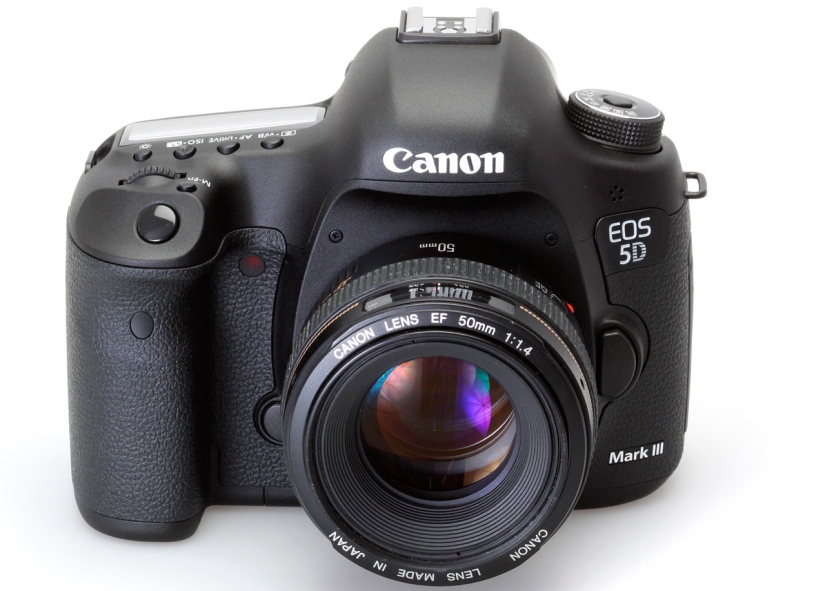
7. Anastasia Taylor-Lind, Bronica SqAi
Anastasia Taylor-Lind prefers a slow process of shooting, usually with a Broinca medium format SLR. Digital cameras have made the process of obtaining a high-quality picture cheaper, but Anastasia herself finds a meditative pleasure in working with a film camera, which cannot be achieved with technological counterparts. The author sees the square viewfinder and the shooting position from the hip among the advantages of the camera. This allows you to better feel the composition and take pictures more accurately.
Sensor: 6×6, film type 120.

8. Jim Richardson, Nikon D800E
When Nikon finally entered the megapixel race, it made the move with the 36-megapixel D800. Jim Richardson prefers the D800E for amazing depth shots.
Sensor: 36 MP, full frame.
Keywords: National Geographic | Camera
Post News ArticleRecent articles

Much has been said and written about the secret affairs of the 35th US President John Kennedy. The most famous is his affair with ...

We present you a small tour of the most famous monuments of dead geniuses. --> Grave of Oscar Wilde in the cemetery of ...
Related articles

We build cities to create spaces for living and working, but all of that concrete distances us from the natural world. So, to ...

Augustus Sherman worked in these years, the chief official in the office of records at Ellis island in new York, who was for many ...

Professional photographer revealed the secrets of successful shots. Bonnie rodríguez Krzywicki (Bonnie Rodríguez Krzywicki) in ...

The scientific names of animals often mislead us. And appearances can often be deceiving. An inhabitant of the jungles of South ...